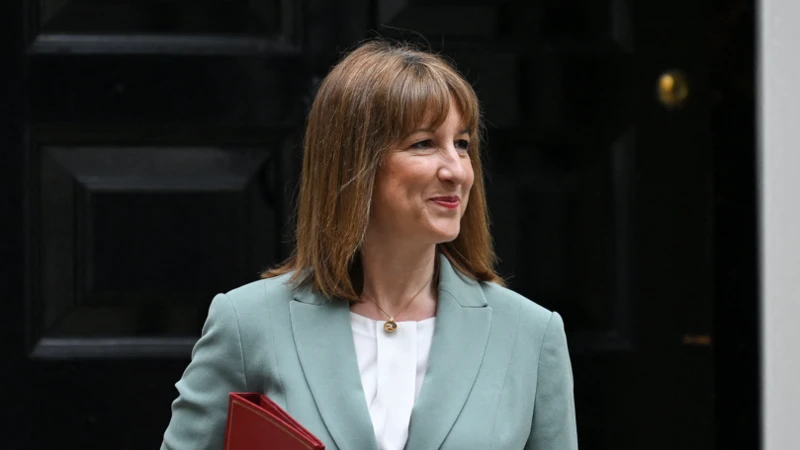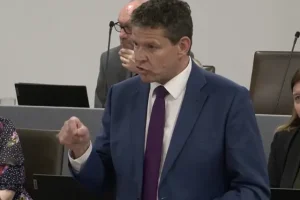Tories accuse Labour of rewriting history, Lib Dems say Wales ‘gets the scraps’, and unions urge caution
LABOUR’S headline £445 million pledge for Welsh rail has come under fire from all sides of the political spectrum following this week’s UK Government Spending Review.
Welsh Conservatives have strongly criticised the announcement, calling it a “kick in the teeth” and accusing Labour of trying to take credit for a level of investment that pales in comparison to previous Conservative funding.
During Control Periods 5 and 6, the UK Government invested £750 million and £350 million in Welsh rail infrastructure respectively—totalling £1.1 billion, compared to the £445 million now pledged with no clear timeline. Conservatives also say Labour continues to claim credit for the South Wales Metro, despite half of it being funded by the previous UK Government through the Growth Deal.
Sam Rowlands MS, Welsh Conservative Shadow Cabinet Secretary for Transport and Infrastructure, said: “While any investment in Wales is welcome, it is disingenuous for Labour to frame this announcement as ‘generous’ when previous UK Conservative Government contributions far exceeded these figures.
“We were promised two Governments on either side of the M4 working together for the benefit of Wales, but instead, we have seen broken promises and a reluctance to provide Wales with its fair share of funding.”
Welsh Conservative Leader Darren Millar MS added: “Eluned Morgan in Cardiff Bay and Keir Starmer in Westminster have failed, forgotten and fleeced the people of Wales.”
The Welsh Liberal Democrats also expressed dismay, with Westminster Spokesperson David Chadwick MP saying: “Yet again, we have seen Wales get the scraps. The funding announced today falls far short of the billions owed to Wales over recent years.
“Without devolving rail fully to Wales, we will continue to see these scandals repeat as English projects are ramped up while we’re left behind.”
However, the GMB union welcomed parts of the Spending Review, particularly the funding pledges for healthcare and education.
Rachel Harrison, GMB National Secretary, said: “GMB will always welcome extra cash for the NHS, and fresh money for the police, prisons and probation is something we’ve long called for, along with funding for school buildings and mental health provision in education.”
Despite that optimism, financial experts have issued a stark warning over the long-term fiscal consequences
Nigel Green, CEO of global advisory firm deVere Group, said the Chancellor is “spending money she hasn’t got” and warned of a looming “tax reckoning” in the Autumn Budget.
“Every signal from this Spending Review points to the UK tightening the screws on its most mobile, economically productive residents. And they’re already voting with their feet,” said Green.
The Welsh Government has yet to respond to the escalating criticism. A full breakdown of the transport funding timeline and allocations is expected later this month.
Spending Review 2025: Key points at a glance
Chancellor sets out multi-year budgets and investment plans
Health
- NHS day-to-day budget in England to rise 3% in real terms, reaching £226bn by 2029.
Education
- Schools budget to rise 0.4% in real terms.
- Free school meals expanded to 500,000 more children.
- £615m set aside for teacher pay rise—schools to fund a quarter of the cost.
Crime and Justice
- Home Office day-to-day budget to fall 1.7%.
- Police “spending power” up 2.3% a year—dependent on local tax increases.
- Border Security Command to get £280m more by 2029.
- Pledge to end hotel use for asylum seekers.
- Ministry of Justice to receive 1.8% annual increases.
Defence
- Daily MoD budget up 0.7% in real terms.
- Investment spending to average 7.3% over the period.
- Defence spending to rise from 2.3% to 2.5% of GDP by 2027.
Housing and Local Government
- £39bn pledged for social housing in England (2026–2036).
- Annual average spend to rise from £2.3bn to £3.9bn.
Transport, Energy and Environment
- £15.6bn for English regional transport (2027–2031).
- £11.5bn public investment committed for Sizewell C nuclear project.
- £3 cap on single bus fares extended to March 2027.
- Treasury to revise rules for assessing infrastructure projects.
International Affairs
- Foreign Office budget to drop 6.8% in real terms.
- Overseas aid to fall to 0.3% of national income by 2027.














